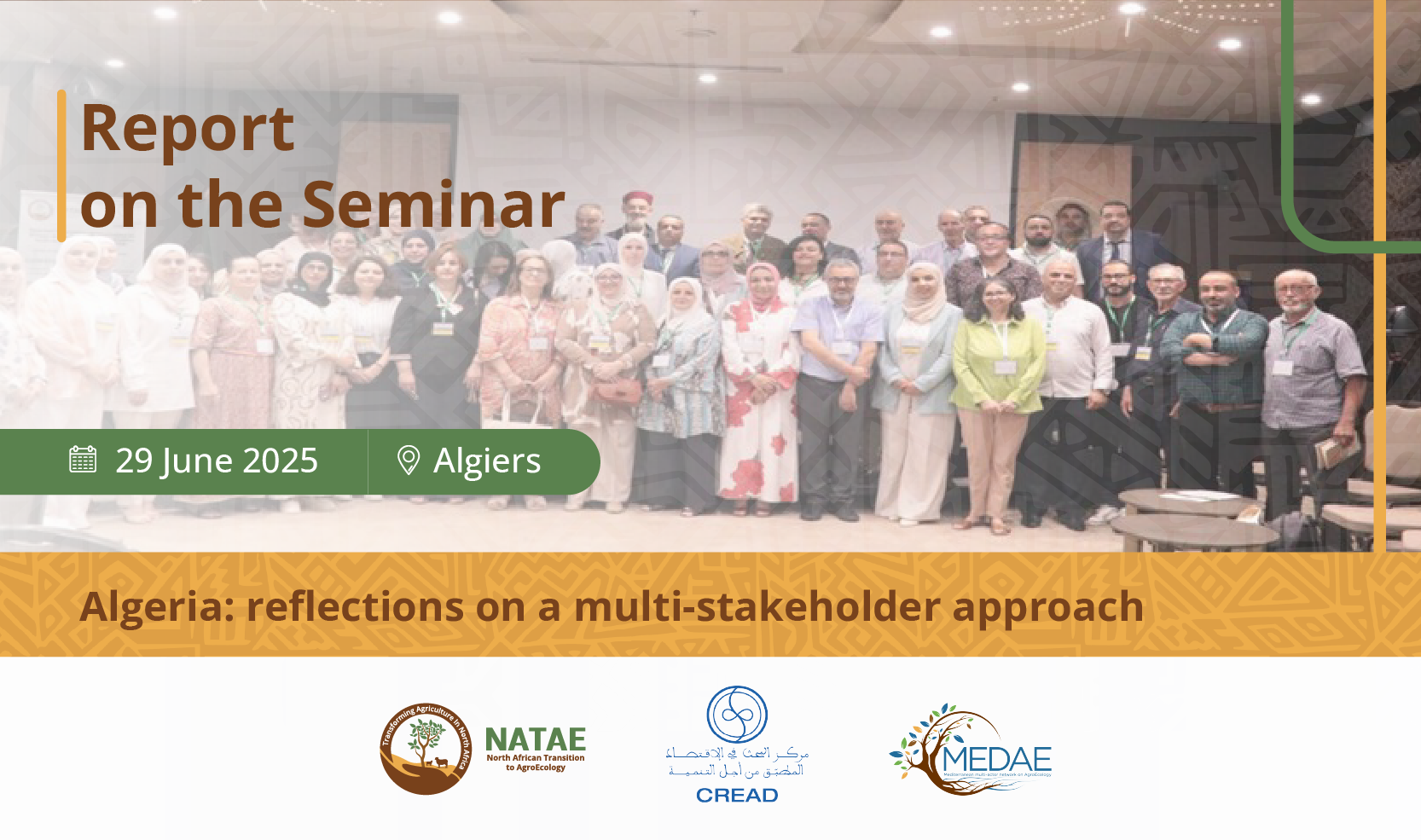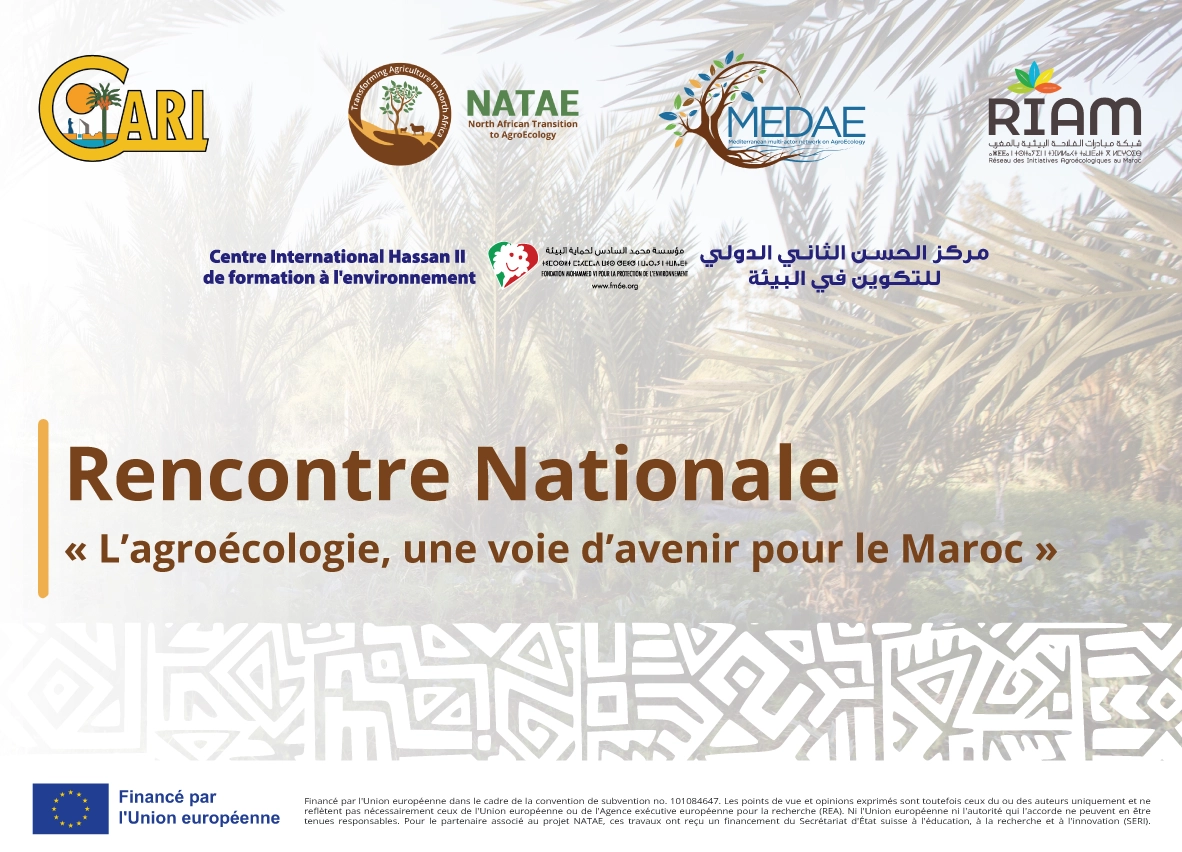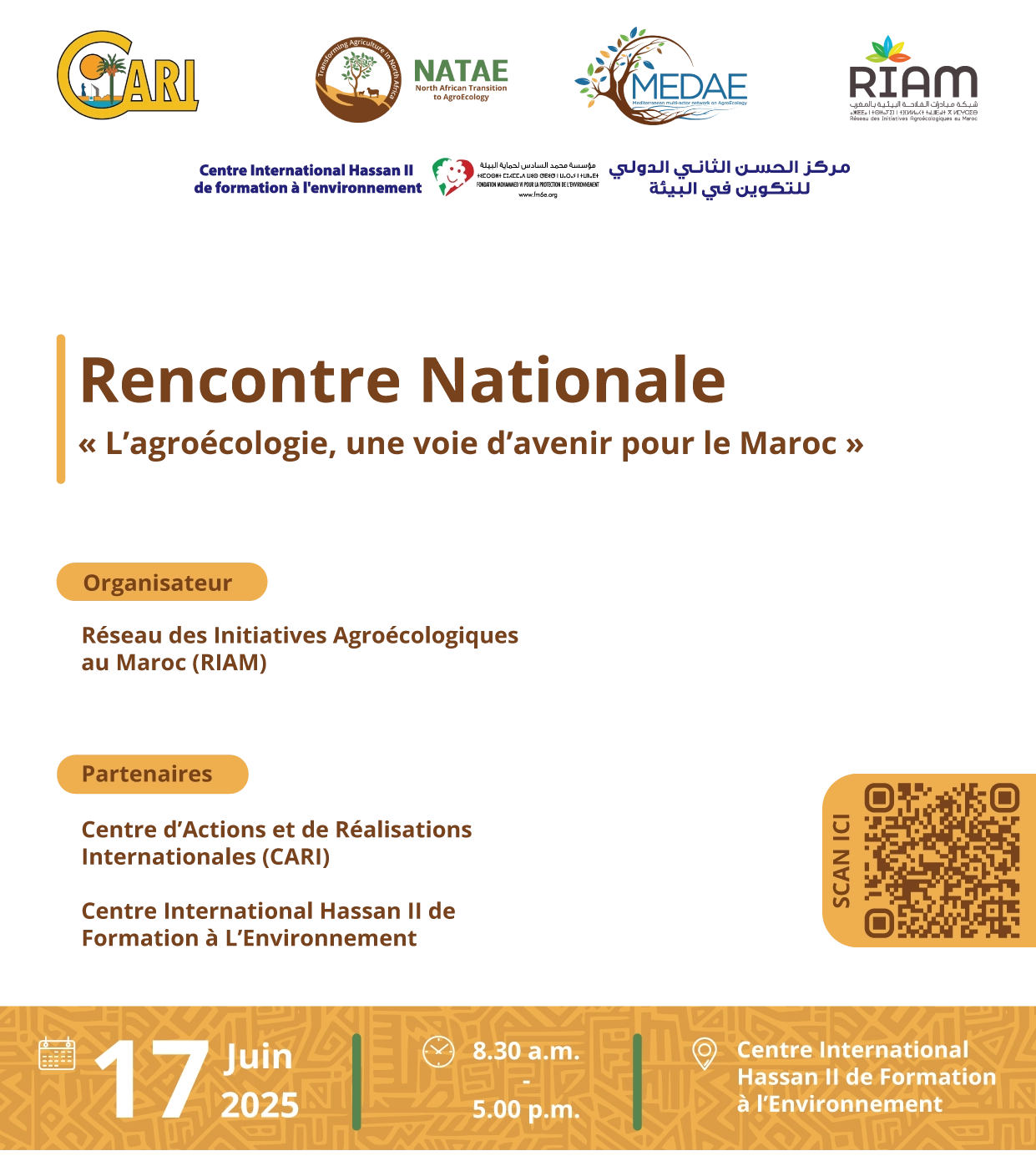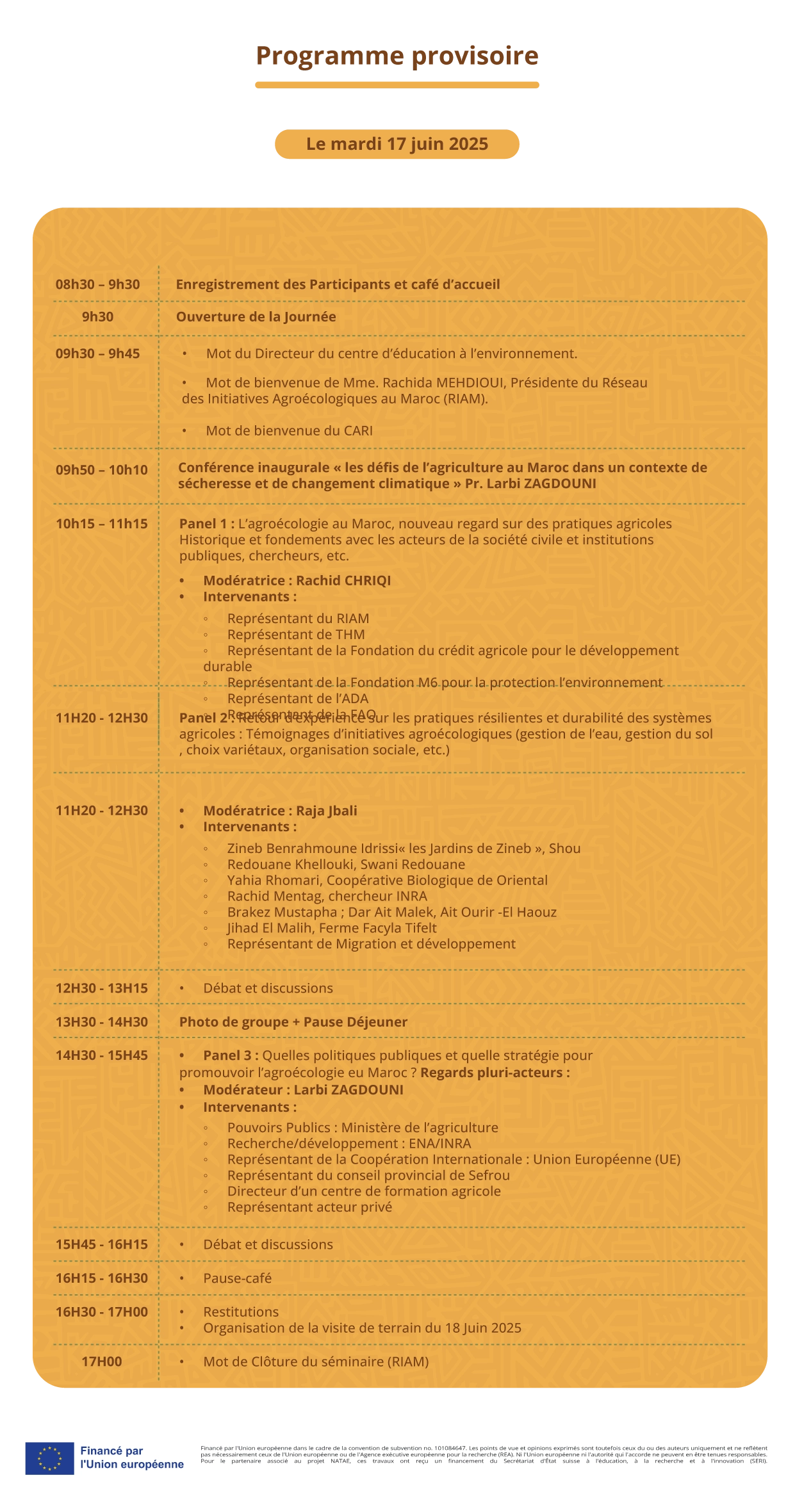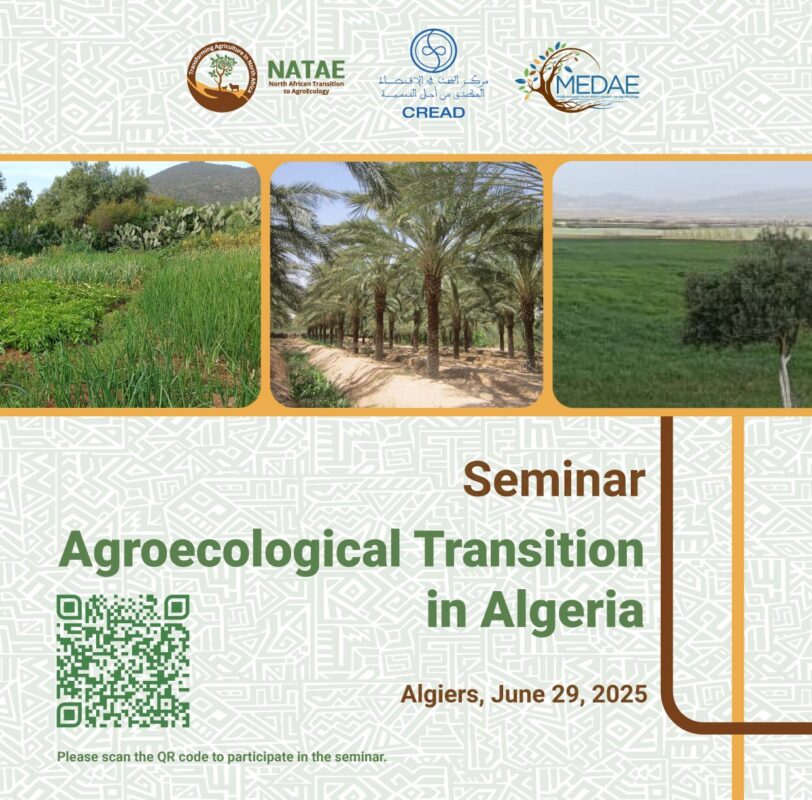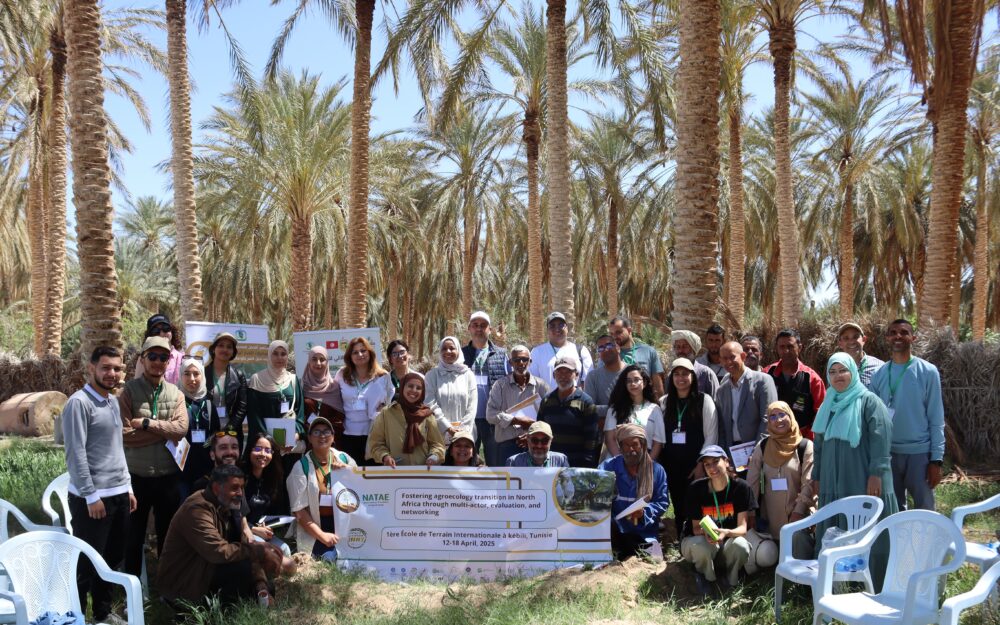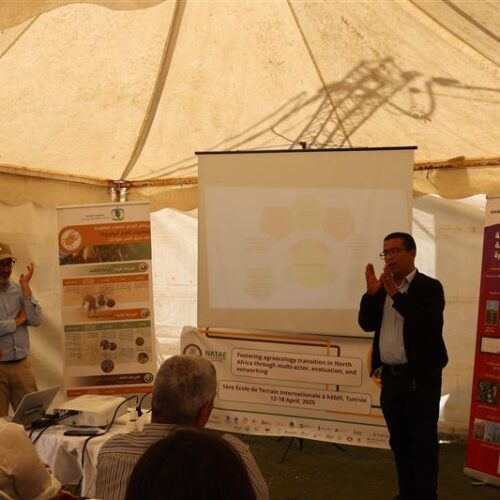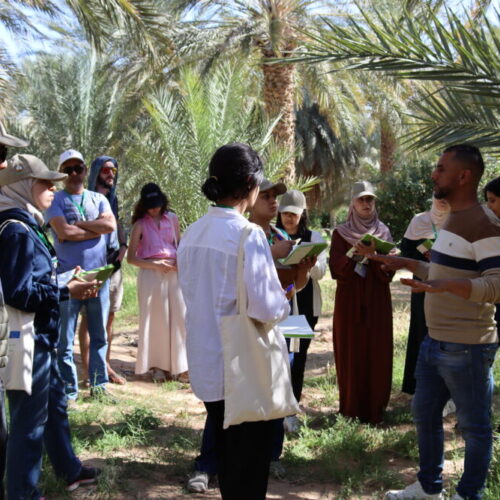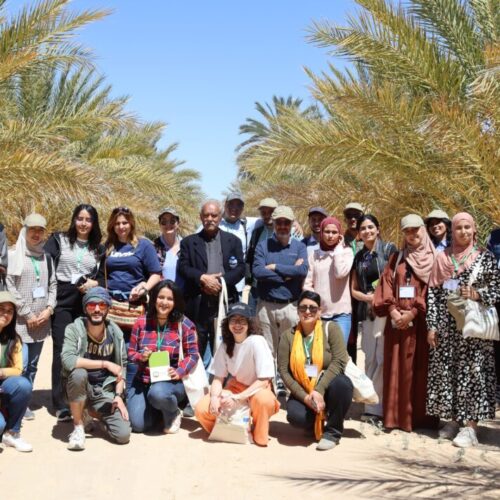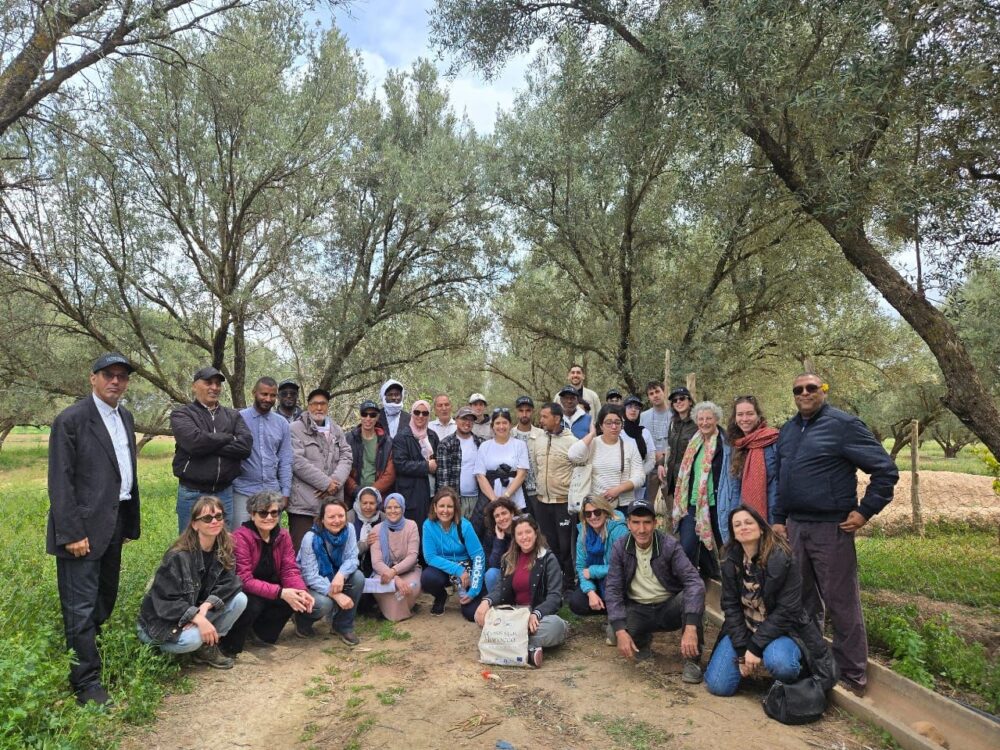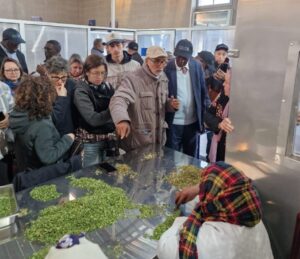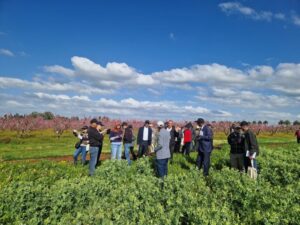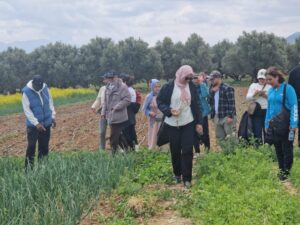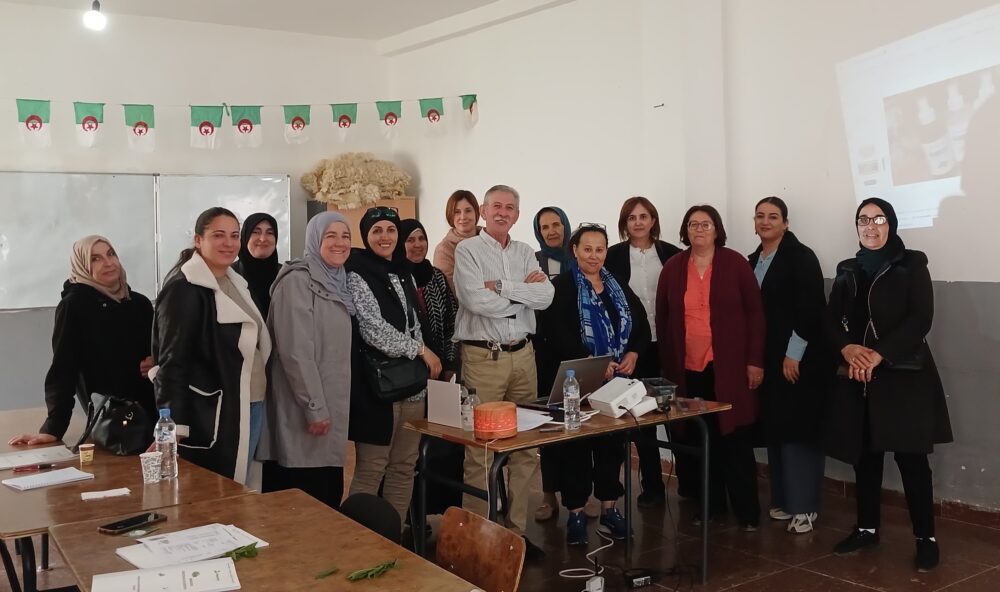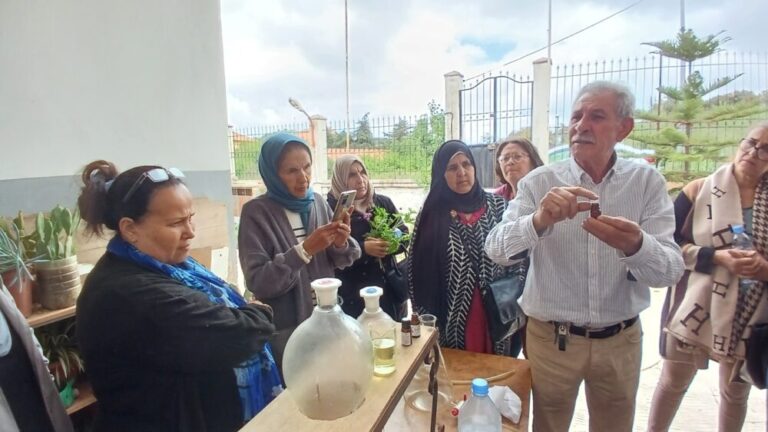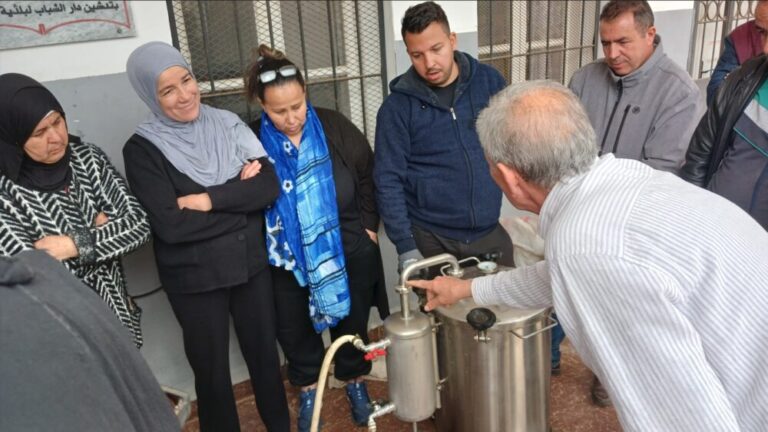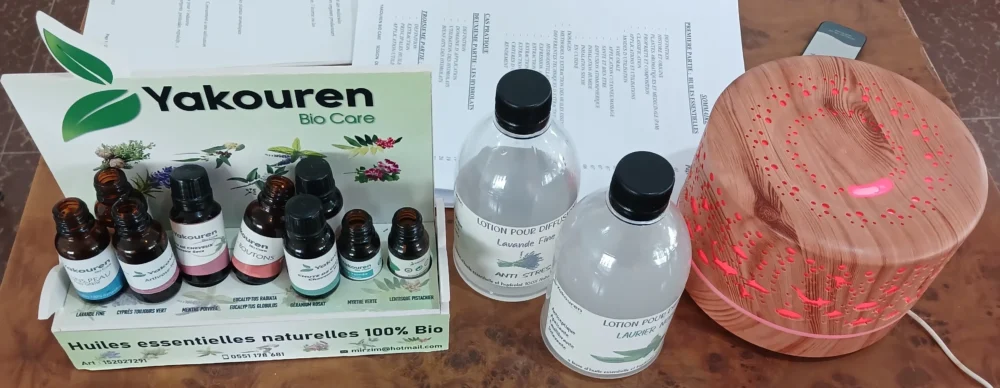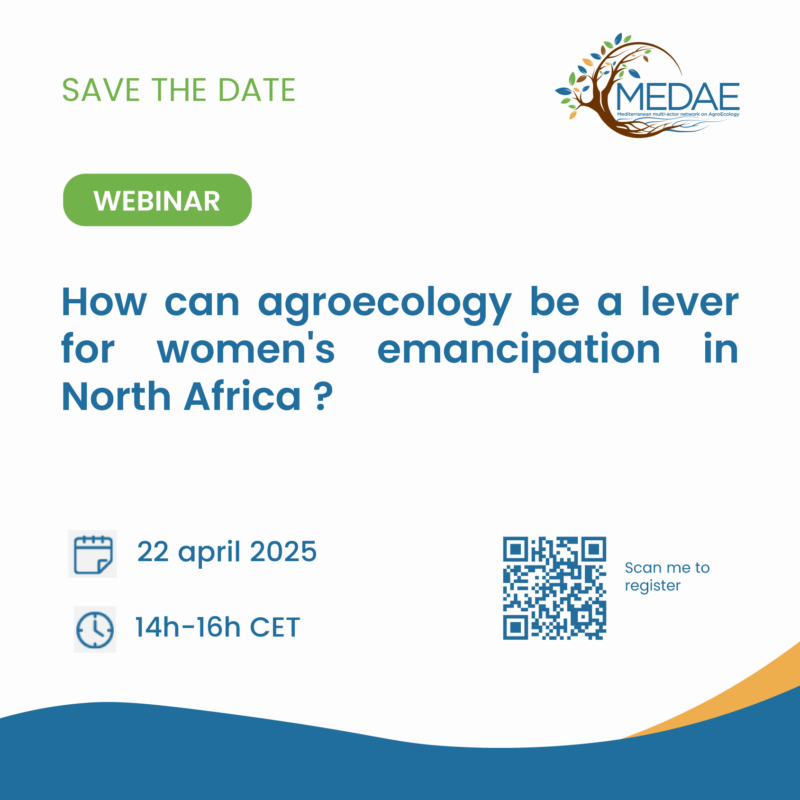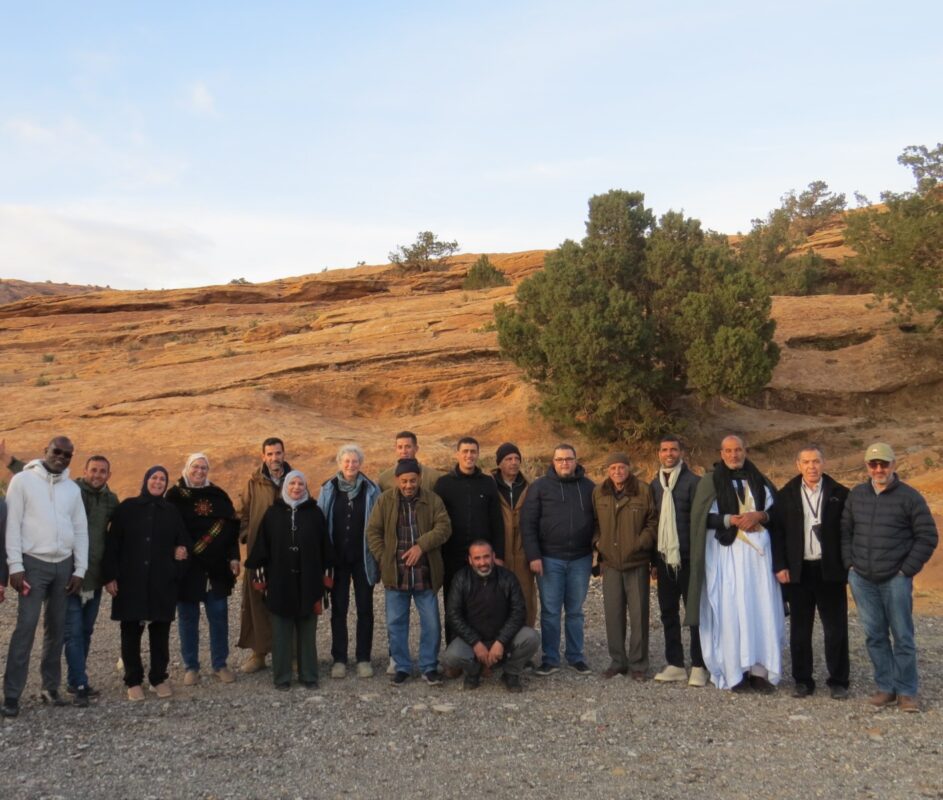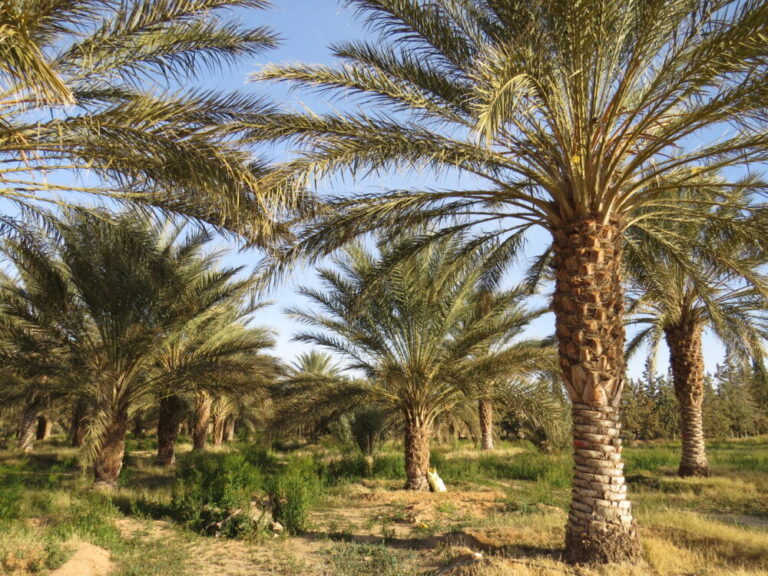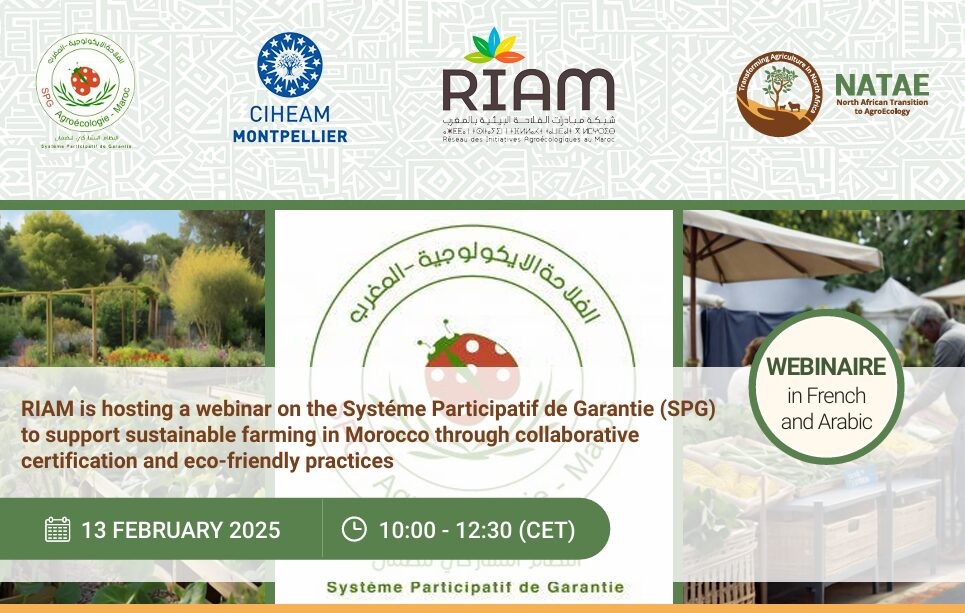Agroecological transition in the different ecosystems to address climate change in Algeria: reflections on a multi-stakeholder approach
Algiers, 29 June 2025
The Centre for Research in Applied Economics for Development (CREAD) and the Multi-Stakeholder Network of Agroecology in the Mediterranean (MEDAE) organised a seminar on “Agroecological transition in different ecosystems to address climate change in Algeria: reflections on a multi-stakeholder approach”. The seminar was attended by partners of the NATAE project but also agroecology professionals (farmers, networks and organizations), representatives of the agricultural administration, higher education, research and development agencies and the media.

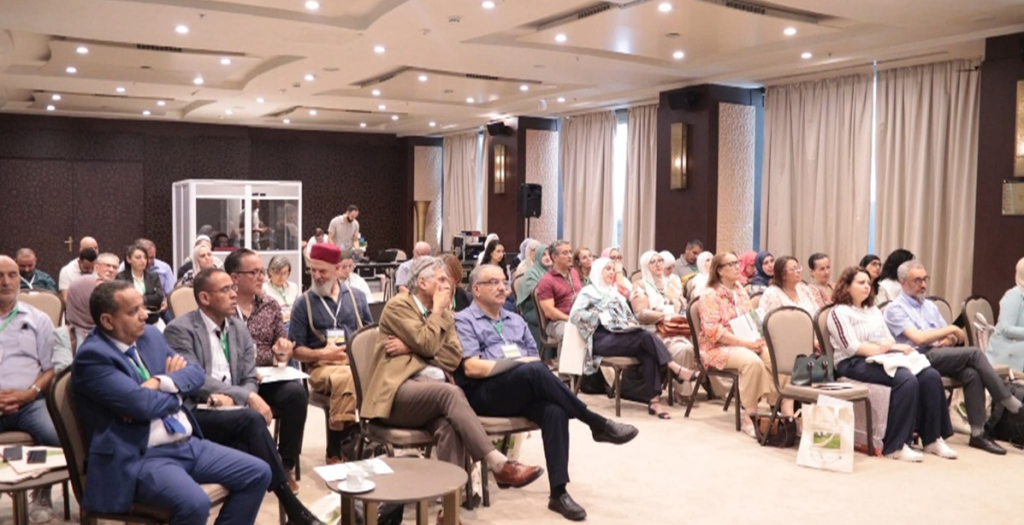
The seminar was sequenced in three sessions. The first session dealt with agroecology in different agrosystems in North Africa. The second session was devoted to the testimony of a panel of agroecology professionals (farmers, networks and associations) and the third session focused on policies and programs for the agroecological transition.
Session 1: Agroecology in different agrosystems in North Africa
This session, which was moderated by Amel Bouzid, Director of the Agriculture, Land and Environment Division at CREAD, was dedicated to papers that address agroecology in the North Africa region through the lens of the NATAE project. Mélanie Requiers-Desjardins presented the project which focuses on the agroecological transition in North Africa. The project is based on the tool of living labs which has been set up on 7 sites across North Africa (Algeria, Morocco, Tunisia, Egypt and Mauritania), and cover four types of agrosystems: oases, mountainous, cereal and peri-urban. There are also five replicant labs in areas with the same agrosystems. A multi-stakeholder approach and the participatory approach have been adopted for the territorial diagnosis, the experimentation of agroecological practices and the development of agroecological transition scenarios. Encouraging results are beginning to emerge in terms of the adoption of agroecological practices and the existence of local ecosystems capable of supporting this form of agriculture. This approach can guarantee the preservation of natural resources, biodiversity and human health.
Rita Jalkh, a member of the NATAE project’s executive board, presented the multi-stakeholder network on agroecology in the Mediterranean (MEDAE), which was created within the framework of the project. The network aims to establish a knowledge and capacity-building community and to facilitate ongoing exchanges and collaborations beyond the scope of the NATAE project. The presence of organisations from the agroecology ecosystem was intended to stimulate their interest in joining the network.
The first results of the NATAE project are presented below. Karima Boudedja, a researcher at CREAD and leader of the living lab in Tizi-Ouzou, Algeria, focusing on the mountain agrosystem, presented the implementation of the methodology, which led to the development of agroecological transition scenarios. These scenarios integrated the agroecological practices tested within the project framework, as well as aspects of governance and value chain structuring, such as facilitating access to resources (including land), building skills through training, and organising farmers through cooperative creation. Souad Benmoussa, an expert at the living lab in Laghouat, Algeria, which is dominated by the oasis and peri-oasis agro-ecosystem, reported the decline and overexploitation of groundwater in the oasis system, as well as the low productivity and dependence on inputs of the peri-oasis system. The project is implementing strategies to mitigate the effects of climate change and intensive agriculture, and to preserve natural resources (soil and water). The cereal agrosystem is undoubtedly of strategic importance for North African countries. Mehdi Benmimoune, a lecturer-researcher at INAT and a member of the NATAE project’s Executive Board, presented the Living Lab of Siliana in Tunisia. Soil degradation due to deep ploughing, land fragmentation, and monoculture were identified as issues that need to be addressed during the territorial diagnosis. Agroecological practices such as zero ploughing, crop association and rotations have been tested by farmers and are beginning to be adopted in the area.
Following the presentations, there was a lively debate and questions were asked about the methodological tools used in the project. Mélanie Requier-Desjardins provided clarifications on how these tools were adapted to the local contexts of the living labs. The other speakers used the opportunity to elaborate further on identifying combinations of agroecological practices and the mechanisms put in place to ensure the dissemination and sustainability of these practices.




Session 2: The panel of agroecology professionals
Aissa Belhadi, a researcher at CREAD, moderated this session. The panelists shared their diverse experiences with agroecology. Some discovered agroecology by adopting production methods that preserve consumers’ health. This was the case for the Torba association in Algiers, the Tarwa Iakourene association in Yakourene, Tizi Ouzou, and the El Argoub association in Laghouat. Others, such as Tunisian farmers Imène Chebli and Anouar Boubakri, inherited this mode of production. Imène Chebli credits her grandmother’s advice for her immersion in agroecological practices. Anouar Boubakri learned directly through experience, growing up in a family of farmers and herders. The Tunisian farmer Amin Ben Abdallah is a prime example of someone who has chosen agroecology as a mode of production. He has been committed to this approach since the beginning of his agricultural career. He has immersed himself in agroecological principles, demonstrating his commitment to this mode of production. He was instrumental in establishing the Tunisian Network for Agroecological Transition (RTTA). Another testimony comes from a farmer and former agricultural sector executive in Sétif, 350 km east of Algiers. In his testimony, he explained that the idea had come to him. During a trip to Tunisia, he discovered no-till farming and its higher yields compared to conventional agriculture. After trialling no-till farming on his own land, he became a fervent advocate of the practice, doing all he can to convince others, even though he acknowledges that uptake is mixed.
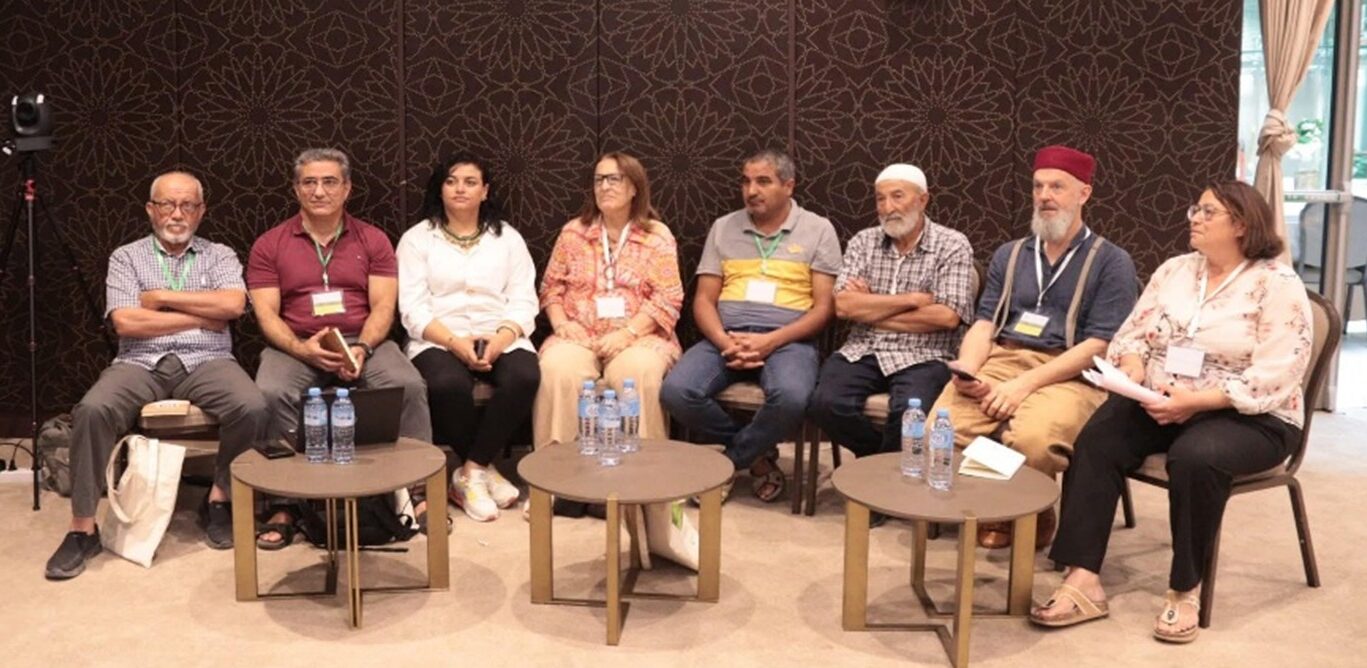 Finally, the experiences of the various members of the panel highlight the crucial role of the associative movement in disseminating agroecological practices.
Finally, the experiences of the various members of the panel highlight the crucial role of the associative movement in disseminating agroecological practices.
Despite the panel members raising some constraints, such as difficulties accessing land (especially for women), a lack of certification, difficulties managing weed flora, restrictive regulations (especially regarding the multiplication of farmers’ seeds) and a lack of adequate agricultural equipment, they are optimistic due to the growing demand for agroecological products and the interest of various partners, including researchers, administrators and technicians, in this form of agriculture.
Session 3: Policies and Programs for the Agroecological Transition
This session, moderated by Amine Oulmane, a researcher at CREAD, focused on policies and programmes for developing alternative forms of agriculture to combat climate change in Algeria, such as organic farming, conservation agriculture and agroecology. The session also covered efforts in terms of training and capacity building, as well as agricultural advice.
Naima Bouras, Deputy Director of Organic Agriculture and Labelling at the Ministry of Agriculture, Rural Development and Fisheries, gave the first presentation. She highlighted programmes whose objectives align with the principles of agroecology, despite there being no programme that is explicitly declared as such. Water and soil resource preservation is clearly a priority, as reflected in the programme to promote water-efficient irrigation systems and the green dam programme to combat desertification and conserve soil. Meanwhile, the preservation of genetic heritage and local seeds is one of the objectives of the product labelling and differentiation programme. Lydia Chaou from the Technical Institute of Field Crops (ITGC) gave the second presentation, which was dedicated to the institute’s programme to mitigate the effects of climate change, particularly aridity, on cereal production. The ITGC is developing seed varieties adapted to different agro-ecological zones, as well as practices that limit soil degradation and the use of chemical fertilisers. The public agricultural advisory system incorporates alternative forms of agriculture into the programmes of public agricultural advisory institutions. Mohamed Abdelmoutaleb, deputy director of the National Institute of Agricultural Extension (INVA), presented the channels and means deployed, such as radio programmes, demonstration sessions and farmer training, to disseminate themes in line with those presented by Naima Bouras. It was concluded that there is still room for improvement, and that research programmes such as the NATAE project could provide results to be disseminated in terms of agroecological practices and principles. The same can be said for agricultural training. Brahim Bouchareb presented the integration of agroecology into higher education and vocational training programmes in agriculture. Although this is evolving, there is still room for improvement, and international cooperation could play a role.
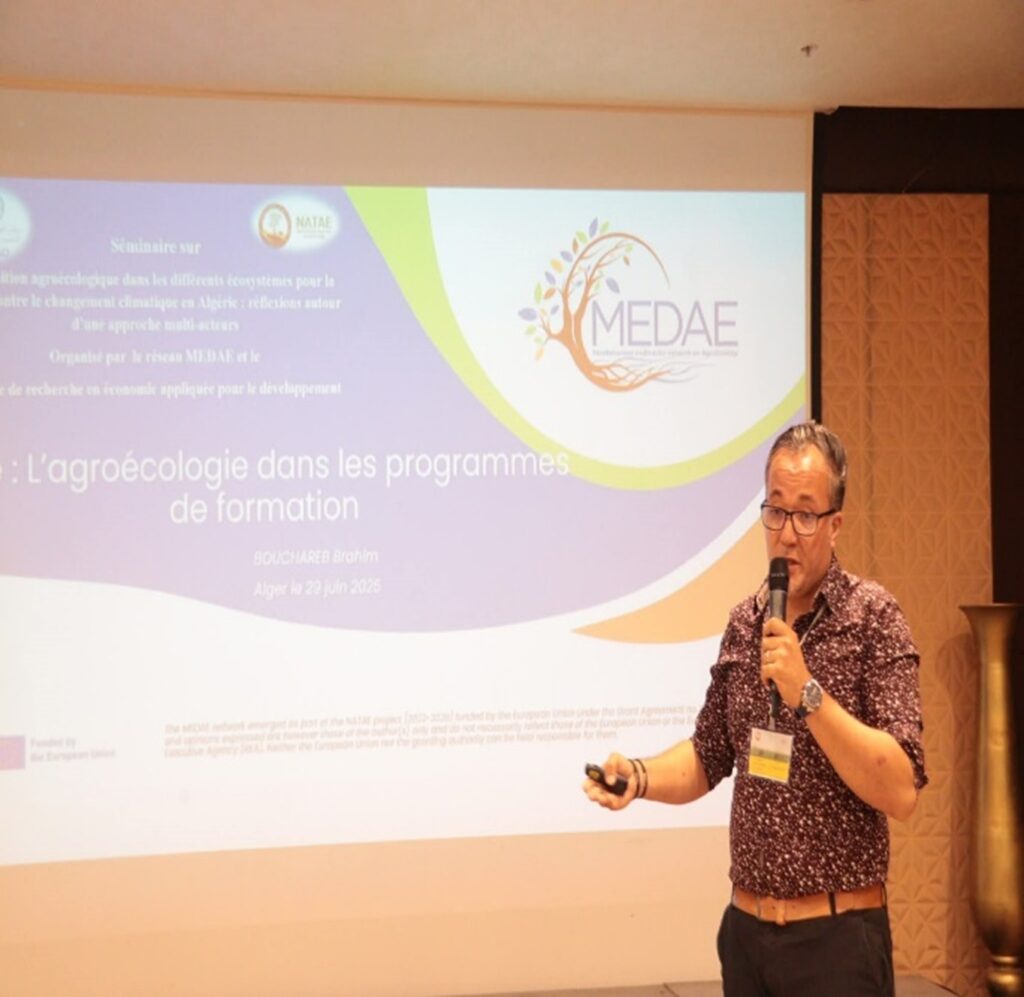
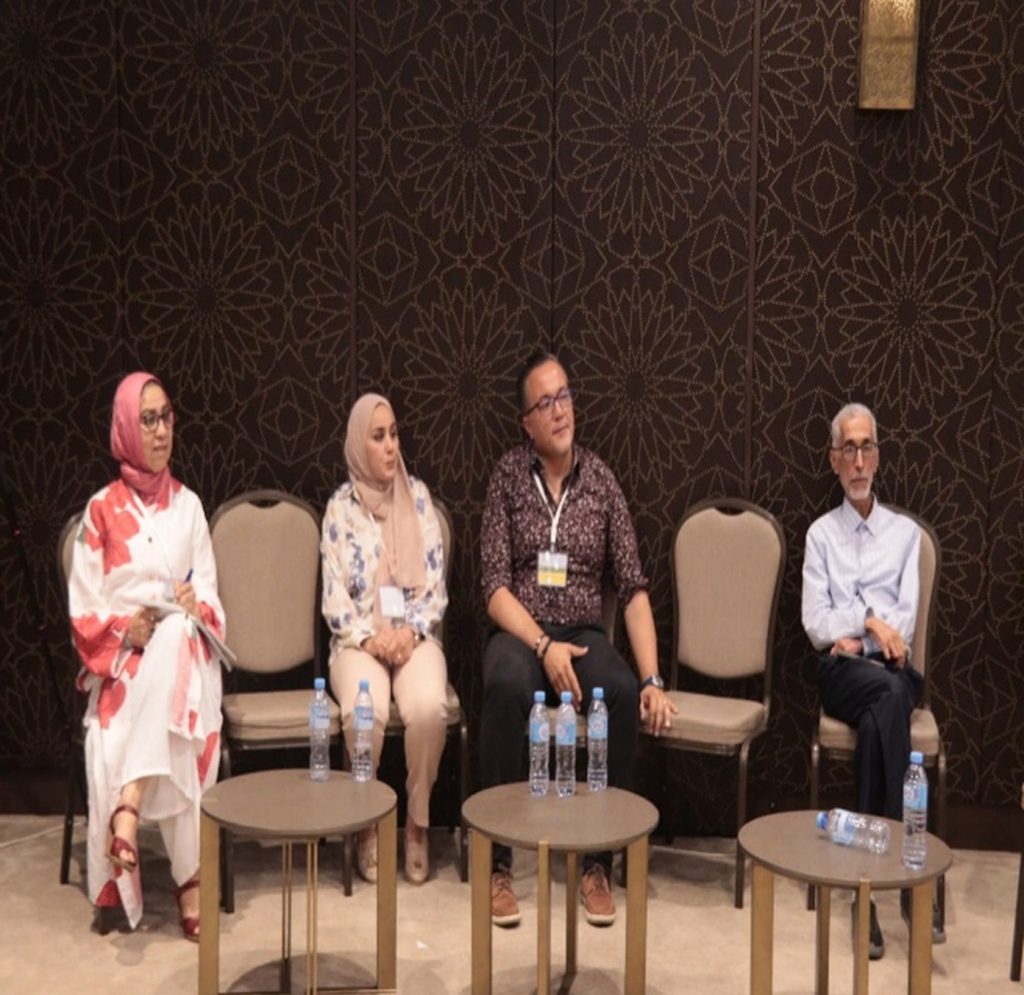
The debate provided more detail on the programmes discussed, as well as on the need to coordinate the efforts of those involved, thereby enabling the effective and sustainable implementation of agroecology through a multi-stakeholder approach adapted to agrosystems and local contexts.
